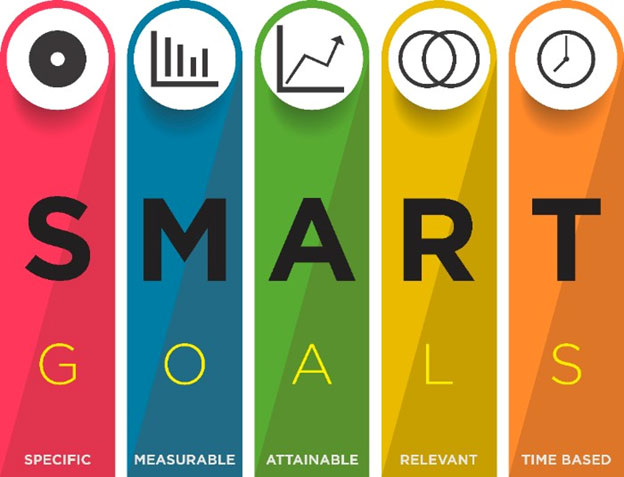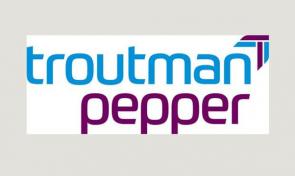Mastering goal-setting techniques is essential for attorneys and law students in the competitive legal landscape. This article explores the crucial role of goal-setting in the law profession, highlighting its significance in career advancement, skill development, time and stress management, and improving client satisfaction. It delves into the SMART (Specific, Measurable, Achievable, Relevant, Time-bound) approach to setting goals, a powerful tool that facilitates more precise, achievable targets. The article uses practical case studies to demonstrate the SMART method's effectiveness in real-world scenarios, from law firm improvement strategies and law student internship pursuits to an attorney's job transition. Law professionals can confidently navigate their career paths and achieve sustainable success with structured, SMART goal-setting.

1. What is the significance of goal-setting in the law profession?
Goal-setting plays a pivotal role in the law profession. It provides a roadmap for career advancement, aids in skill development, contributes to better time management, assists in stress management, and can enhance client satisfaction. Clear goals can lead to higher job satisfaction, greater efficiency, reduced stress levels, and improved attorney-client relationships.
2. What is the SMART approach to goal-setting?
The SMART approach provides a structured method for setting goals. It involves creating Specific, Measurable, Achievable, Relevant, and Time-bound goals. This approach ensures that goals are clear, realistic, and easier to track and accomplish.
3. How can the SMART approach help a law firm improve client satisfaction ratings?
The SMART approach can help a law firm set clear, measurable, and time-bound goals to improve client satisfaction. For instance, a firm can set a goal to "improve client satisfaction ratings by a certain percentage over a certain period by enhancing certain aspects of its service" and then take actionable steps to achieve it.
4. Can a law student use the SMART approach to secure an internship?
Yes, a law student can apply the SMART approach to set a clear, achievable goal for securing an internship. The student can effectively pursue this goal by identifying a specific field of interest, a target type of firm, and a timeline.
5. How can an attorney utilize the SMART goal-setting approach during a job transition?
An attorney can set a SMART goal during a job transition by specifying the kind of job, firm, and timeline for their job search. To achieve their goal, the attorney can then take actionable steps, such as updating their resume, networking, applying to job postings, and preparing for interviews.
Success in the demanding world of law—whether you're an established attorney or an aspiring law student—necessitates intelligence, diligence, and strategic goal-setting. Defined objectives allow you to build a roadmap that leads to your professional aspirations. One technique that has gained global recognition for its efficacy is the SMART approach. This methodology fosters precise, actionable goals and has proven to be a game-changer for many attorneys and law students. For an in-depth look at applying SMART goals to real career milestones, see Using SMART Goals to Achieve Specific Targets.
Understanding the Importance of Goal-Setting in Law
Goal-setting is an indispensable skill for success in any profession, but its relevance in the field of law is even more pronounced due to the industry's high stakes and competitive nature. It provides a roadmap for attorneys and law students to navigate their career trajectories with purpose and clarity. Here's why goal-setting is of paramount importance for law professionals:Career Advancement
With a well-defined goal, attorneys and law students can plan for and measure progress toward their career advancement. It's not enough to merely desire success; setting explicit targets provides direction and focus.
In a survey conducted by the American Bar Association in 2022, it was found that attorneys with clear career goals were twice as likely to report job satisfaction and felt more in control of their career paths than those without specified objectives.
Skill Development
The law profession requires an ongoing commitment to learning and developing various skills, from communication and critical thinking to research and negotiation. Setting goals for continuous skill improvement helps professionals stay updated and relevant in their field.
For instance, a study by the University of Pennsylvania Law School in 2022 indicated that law students who set goals to develop specific skills, like oral advocacy or legal writing, performed better academically and in their future law practices.
Time Management
The legal field is notorious for its demanding workload. From managing multiple cases to keeping abreast of the latest legislative changes, attorneys are often pressed for time. Law students, too, juggle intense study schedules, internships, and extracurricular activities.
A study by the Legal Productivity Organization in 2022 found that attorneys and law students who set time-related goals were 30% more efficient than their peers who did not. Setting goals can contribute significantly to better time management and productivity in this profession.
Stress Management
The legal profession can be stressful, with high levels of burnout and mental health issues. Establishing goals can provide a sense of control and predictability, which can mitigate stress levels.
The Anxiety and Depression Association of America reported in 2022 that attorneys who practiced regular goal-setting were less likely to experience burnout. Similarly, law students who set manageable academic and career goals reported lower stress levels and higher emotional well-being.
Client Satisfaction
Setting goals that align with client expectations can enhance client satisfaction and foster stronger attorney-client relationships. When attorneys set goals to improve client communication or streamline legal processes, they will likely see higher client satisfaction scores.
In 2023, a report by the National Client Satisfaction Board highlighted that law firms with goal-driven attorneys had a client satisfaction score of 85% and above, outperforming their competitors.
Goal-setting in law is not merely a strategy for personal success but a critical factor influencing productivity, client satisfaction, and overall mental health. By setting well-defined, strategic goals, attorneys and law students can navigate the challenging landscape of the legal profession with confidence and purpose.
The SMART Approach to Goal-Setting
The SMART approach to goal-setting offers a structured framework to develop precise, actionable, and realistic goals. By breaking down objectives into Specific, Measurable, Achievable, Relevant, and Time-bound elements, this approach ensures that goals are clearly defined and easier to accomplish.SPECIFIC
The first step to effective goal setting involves defining your objective in clear, unambiguous terms. Specific goals answer the 'what,' 'why,' and 'how' of your objectives. They offer clear-cut directions and reduce confusion.For example, an attorney might want to improve their professional skills. Instead of setting a vague goal like "I want to improve my skills," they might say, "I want to improve my litigation skills by taking a trial advocacy course."
Specificity in goal setting can be crucial for law professionals, as it can pave the way for focused efforts and clear outcomes.
MEASURABLE
Creating measurable goals allows for tracking progress and adjusting your approach if needed. If a goal isn't measurable, knowing whether or not you're making progress can be challenging, leading to reduced motivation.For instance, an attorney might set a goal to "increase billable hours by 10% over the next quarter." By defining a measurable increase, they can objectively assess their performance at the quarter's end.
ACHIEVABLE
While it's good to aim high, setting overly ambitious goals that are not achievable can lead to disappointment and decreased motivation. Goals should challenge you but should also be attainable, given your current skills, resources, and constraints.For example, a first-year law student setting a goal to make partner in a law firm within a year is unrealistic. A more achievable goal might be to "excel in my first-year law exams and secure an internship at a reputable law firm."
RELEVANT
Relevant goals align with your broader career objectives, values, and immediate priorities. They help ensure that your work is moving you in the direction you want to go.For instance, if an attorney is passionate about environmental law, they might aim to "publish two articles on environmental policy changes in a recognized law journal within the year."
TIME-BOUND
Setting a time frame for your goals provides a sense of urgency and helps motivate you toward achieving them. Time-bound goals answer the 'when' of your objectives.For example, a law student might aim to "complete a clerkship at a district court before graduating." The timeline here is clear, fostering a sense of urgency and direction.
Each element in the SMART approach plays a critical role in designing effective and realistic goals. Whether you're a seasoned attorney seeking to grow your practice or a law student looking to start your career, the SMART goal-setting technique can be an indispensable tool for professional development. It encourages continuous progress by offering a clear, structured roadmap to your aspirations.
Applying the SMART Approach: A Case Study
To fully appreciate the power and utility of the SMART approach, let's explore its application in three distinct scenarios: one for an established law firm, one for a law student, and another for an attorney searching for a new job. Goal-setting pairs perfectly with these strategies for making the most of every opportunity in law schoolCase Study: Law Firm Goal-Setting
A medium-sized law firm specializing in corporate law found itself facing a decline in client satisfaction ratings. The firm recognized the need for improvement and decided to employ the SMART goal-setting approach.The firm set a goal to "Improve client satisfaction ratings by 20% over the next year by enhancing communication and responsiveness."
The goal was specific in addressing the objective of improving client satisfaction ratings. It was measurable, with a target improvement of 20%. The goal was achievable, as improving communication and responsiveness was within the firm's control. The goal was relevant, aligning with the firm's broader objective of delivering high-quality legal services. Finally, it was time-bound, with a duration of one year.
Over the years, the firm took measurable steps, including regular training sessions for attorneys on client communication and responsiveness. By the end of the year, the firm had not only met its goal but exceeded it, improving client satisfaction ratings by 24%.
Case Study: Law Student Goal-Setting
A second-year law student aimed to secure an internship at a renowned law firm. She was particularly interested in environmental law and wanted to gain practical experience in this field.Her SMART goal was: "Secure an environmental law internship at a top-tier law firm by the end of the next summer."
The goal was specific, targeting an internship in environmental law at a top-tier law firm. It was measurable, as she would know she had achieved her goal when she secured the internship. It was achievable, given her strong academic performance and demonstrated interest in environmental law. It was relevant to her long-term career aspirations of becoming an environmental lawyer. Finally, it was time-bound, with a clear deadline by the end of the next summer.
To achieve this goal, she focused on excelling in her environmental law courses, attended networking events, and sought guidance from her career counselor. By the time summer came, she had secured an internship at a top environmental law firm.
Case Study: Attorney Job Search Goal-Setting
An experienced attorney specializing in family law decided to relocate due to personal reasons. He aimed to secure a similar position in his new city, renowned for its competitive legal market.He set a SMART goal: "Secure a senior attorney position at a reputable family law firm in my new city within six months."
This goal was specific, as he was clear about the kind of job (senior attorney position in a family law firm) he was seeking. It was measurable; he would know he had achieved his goal when he landed the job.
The goal was achievable, as he had significant experience in family law and had already begun researching potential firms in his new location. It was relevant, aligning with his expertise and career trajectory. Finally, it was time-bound, as he aimed to secure a job within six months.
To accomplish this goal, he started by updating his resume and LinkedIn profile to reflect his expertise and achievements in family law. He researched potential law firms, networked with professionals in his new city, and applied to relevant job postings. Additionally, he prepared thoroughly for interviews, focusing on showcasing his family law expertise and achievements.
By the end of six months, he successfully secured a position as a senior attorney at a well-respected family law firm, demonstrating the effectiveness of the SMART goal-setting approach in his job search.
Whether improving a law firm's performance, securing an internship as a law student, or navigating a job transition as an experienced attorney, the SMART goal-setting approach provides a structured and effective method for achieving professional objectives.
These case studies highlight the effectiveness of the SMART approach in goal-setting, whether for a law firm aiming to improve client satisfaction, a law student seeking to kickstart their career in a specific legal field, or an attorney seeking to transition to a new job. The SMART technique facilitates actionable, clear, and realistic goal setting, leading to tangible outcomes and professional success.
Conclusion
Mastering specific goal-setting techniques is critical in the professional journey of attorneys and law students. The SMART approach offers a structured method for setting objectives that lead to increased satisfaction, productivity, and success. As you advance in your legal career, remember that every significant achievement begins with a well-defined, strategic goal.While the SMART methodology may not be a magic wand, it is a practical tool that promotes strategic planning, perseverance, and progress in the dynamic world of law. Whether you are studying for the bar exam, navigating your first years in a law firm, or seeking to expand your legal practice, SMART goal-setting is a technique that can assist in driving your success.




